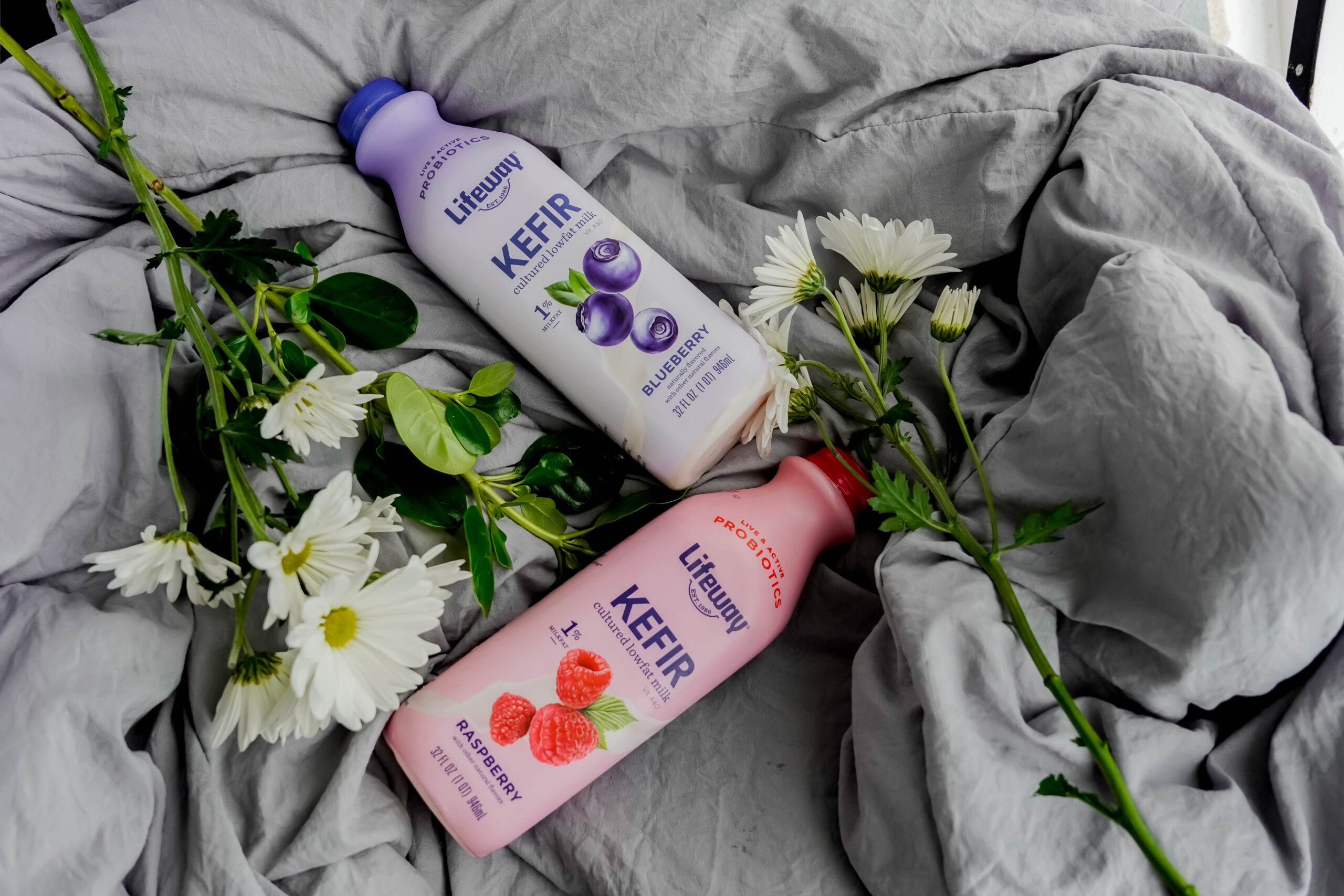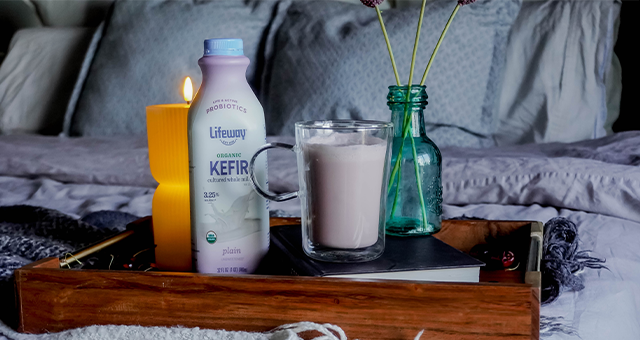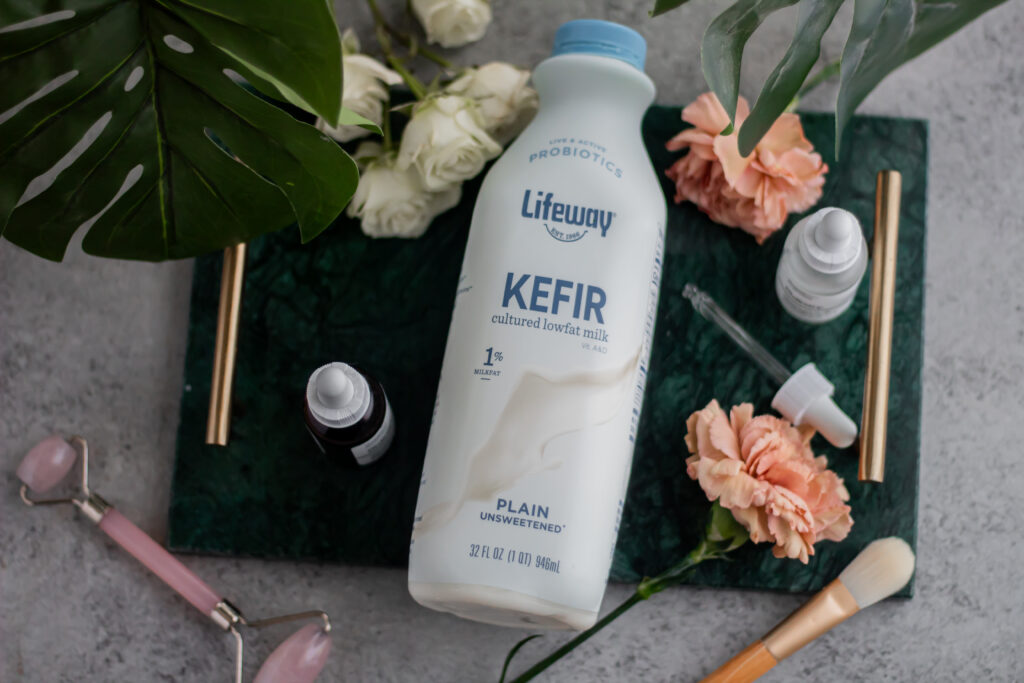A good night’s sleep is often easier said than done. Insomnia or a bad night’s sleep can affect our daily well-being and even be detrimental to our health. While relaxation techniques, changing up our bedtime routine, and limiting screen time before bed are great ideas to improve sleep, perhaps the secret of a good night’s sleep lies within the health of our gut microbiome and the foods we eat.

The Microbiome
The human gastrointestinal tract is home to trillions of microbes called the gut microbiome. Our microbiome plays an active role in our immune system, digestive system, mental health, and overall bodily functions, including the potential for a good night’s sleep.
A healthy gut consists of a diverse and balanced microbiome of good and bad bacteria. When this balance is disturbed, research has found it may have a direct correlation to a good night’s sleep. This unbalance (known as dysbiosis) may happen during times of stress, with age, or when taking medications. However, our diet is considered to be one of the largest contributors to these changes in diversity.
Two parts of our diet that are uniquely able to affect the microbiome are probiotics and prebiotics. Probiotics are “good” bacteria. They are live microorganisms similar to the ones already living in the gut and may offer health benefits when consumed in adequate amounts. They’re found in fermented foods and dairy products such as kefir, probiotic beverages as well as dietary supplements. Prebiotics are non-living, non-digestible carbohydrates naturally found in a variety of foods, including fruits, vegetables, legumes, and whole grains. The body actually can’t digest prebiotics, rather they’re what probiotics feed off of to remain actively working in the digestive system. Together, they help create a balanced gut to keep our immune system, body, and mind healthy.

A Healthy Microbiome and Sleep
The gut-brain axis is a two-way communication in which researchers are finding that the health of our gut may directly impacts the health of our mind and circadian rhythm. It is well known that those who suffer from anxiety and depression suffer from insomnia, and this relationship is also reverse in that insomnia can trigger depression. Research shows that a healthy and balanced microbiome may help positively affect our mental health, as 90% of serotonin, the hormone that affects our mood, is produced by cells in our gut. Adverse changes in the microbiome may cause low levels of serotonin in our brain, which increases the risk of anxiety, depression, and therefore insomnia.
In addition, our microbiome plays an important role in the production of compounds important for sleep. Along with serotonin, which is a sleep-inducing compound, the gut microbiota is responsible for producing precursors, such as tryptophan. Tryptophan is a precursor to both serotonin and melatonin, a hormone that regulates our sleep-wake cycle. When the gut microbiome is in a state of unbalance, the production of these compounds may be decreased and not enough are sent to the receptors in our brain which may affect our ability to fall and stay asleep.
Recent research also shows that the connection between our gut and immune system may play a role in a healthy sleep cycle. Our gut is home to 70-80% of our immune-producing cells, making it our body’s largest site of immunological response and the release of cytokines. Interleukin-6 (IL-6) is a proinflammatory cytokine that is negatively connected to our sleep. When our gut is out of balance, concentrations of IL-6 may increase which studies suggest negatively affects our ability to fall and stay asleep. Probiotics are good bacteria that balance the gut to help immune response, keeping the IL-6 concentrations decreased, and our circadian rhythm in check.
Each 8-ounce serving of kefir is a probiotic powerhouse that contains 12 live and active cultures and 25 to 30 billion beneficial CFU (Colony Forming Units) to help maintain a healthy and balanced gut. In addition, an 8-ounce serving of kefir is an excellent source of vitamin D, riboflavin, vitamin B12 and calcium, and a good source of protein, vitamin A, phosphorus, zinc and selenium, nutrients needed for everyday health.

Tips to Boost Probiotic Intake for a Good Night’s Sleep
- Kefir and cultured dairy products can easily be used as a replacement or addition to your favorite recipes throughout the day to give them a nutrient-rich probiotic boost.
- Use your favorite flavor of kefir as the base for any smoothie or smoothie bowl recipe. In a time-crunch, grab an 8-ounce bottle of kefir instead on the go.
- Use kefir to makeover your breakfast by spicing up a bowl of cereal or granola.
- Up the nutrition power of your overnight oats or chia seed pudding by using nutrient-rich and probiotic-packed kefir.
- Replace cottage cheese with farmer cheese to give a probiotic boost to your favorite dishes.
- Enjoy some gourmet toast with farmer’s cheese topped with sliced vegetables, berries, herbs, honey, and more.
- Substitute mayo or sour cream with kefir to cut calories and fat, without sacrificing flavor in your favorite dips and dressings.
- Add a tangy and flavorful nutrient-rich zip to soups, hummus, snacks and spreads using your favorite flavor of kefir.
- Use kefir as a base for your next protein marinade. Not only does kefir’s tangy flavor work well with fresh herbs and spices to impart a fresh flavor, the lactic acid (in kefir) and the live and active probiotic cultures turn tough cuts into tender, juicy masterpieces that the whole family will love.
- Give your dessert a healthy probiotic boost using your favorite flavor of kefir. It serves as a great base for puddings, popsicles, ice cream, frostings, and more.
- Try our Sleepy Girl Smoothie for additional sleep support!